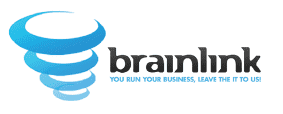
How Fast Could Your Company be Back Up and Working?
You hear it all the time from us-back up your data, keep your virus protection current, and install and maintain a firewall to protect yourself from hackers and other online threats.
However, while these precautions will certainly help you avoid problems, they CAN’T do anything if you don’t have a good backup and disaster recovery plan in place.
What if Disaster Strikes?
We all know that an ounce of prevention is worth a pound of cure; yet, disaster recovery planning often takes a distant second to the daily deadlines and pressures of running a business.
That means that most businesses, including your own, may end up offline and without your data after a simple lightning storm.
Don’t think that could ever happen to you?
Consider this: “data-erasing disasters” can also take the form of office fires and broken water pipes, not just earthquakes, floods and tornadoes. If a fire started in your building, the parts that weren’t burned beyond recovery would probably be destroyed by the fireman’s efforts. But even more common is software corruption, hardware failures and human error!
Disaster Recovery Questions You Need To Answer
A disaster recovery plan doesn’t have to be complicated, time-consuming or expensive.
Start by asking yourself the following questions…
1. Do you back up your company’s data daily to both an onsite and offsite location?
2. Are you absolutely certain that your backup copy is valid, complete and not corrupt? How do you know for sure?
3. If disaster strikes, HOW would you get your data back, and how long would it take? In many cases it takes days and often weeks; what would you do during that period of time?
4. Do you have copies of all the software licenses and discs in a safe location that could be accessed in the event of having to rebuild your server?
5. Would you and your employees have a way to access your network remotely if you couldn’t get to the office?
6. Do you store important passwords in a secure place that company officers can access if you are unavailable?
7. Do you have a UPS (uninterruptable power supply) device in place to keep your network and other critical data operations running during a power outage? This is NOT a complete list, but it is a good start to get you thinking in the right direction.
